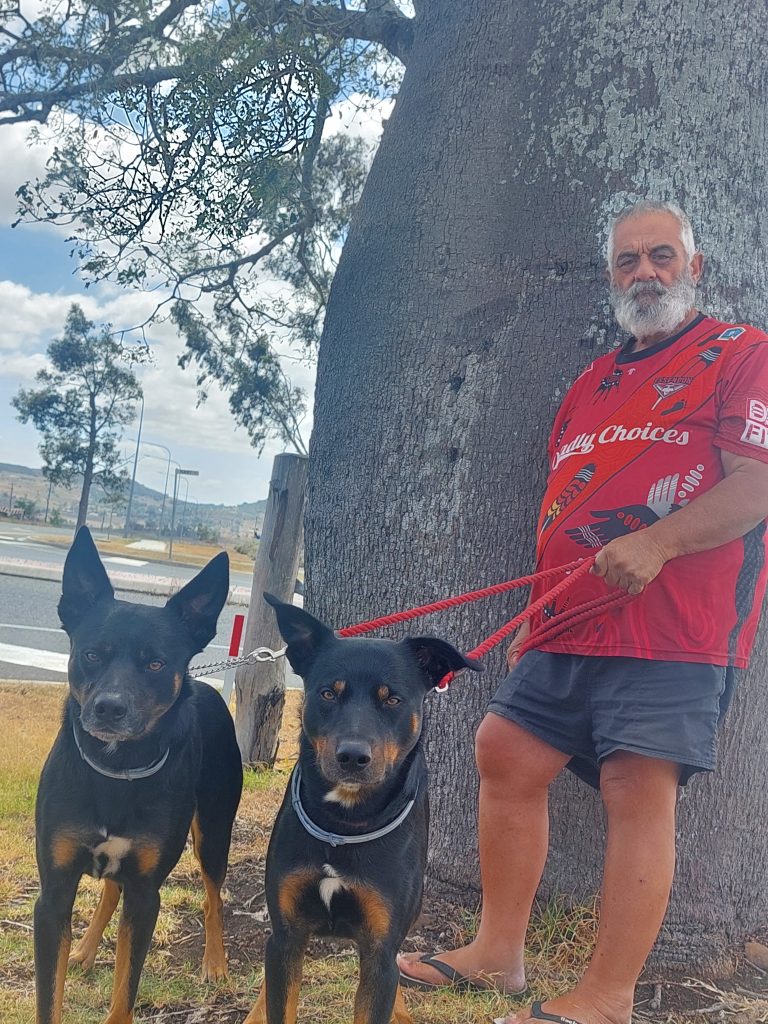‘Lucky stars’ and integrated care save Michael
Posted on December 22, 2023

When Michael walked into the No. 34 Aboriginal Health Service in Ulverstone in October 2022, he had been living with his adult son and two dogs in a shed and his car for months.
The housing crisis had left them without affordable options, and Michael’s chronic health conditions made it challenging to find sustainable work.
The shed where they were staying was near the Mersey River, and fumes from the boats and transport vehicles made it difficult for Michael to breathe.
His health was deteriorating, but he didn’t see a doctor due to his economic circumstances and difficulty accessing an appointment.
“I just couldn’t find a way to get in anywhere,” Michael says.
“But I was getting crooker and crooker.”
By the time Michael presented at No. 34, he was on the verge of a heart attack.
Nicole Fisher, an Integrated Team Care (ITC) coordinator at No. 34, was not expecting to attend an aortic regurgitative heart failure at work that afternoon.
The Australian Government – through Primary Health Tasmania – funds the ITC program, which supports Aboriginal and Torres Strait Islander people who have complex chronic health conditions.
The program often provides one-on-one support to help people manage their conditions and get the health care they need in a culturally conscious setting.
Nicole says Michael appeared quite casual, but she could see that he was clammy and unwell.
“I checked his blood pressure and pulse… and then he had a heart attack … I just went into nurse mode,” she says.
Michael was transported to hospital by ambulance, where he stabilised.
During his stay, medical tests revealed a prostate condition that was incorporated into his care plan.
After his release, Nicole became his care coordinator, ensuring he made all necessary appointments for cardiology, radiology, foot care and ongoing assessments.
She says it was a relief to see Michael in improved health.
Michael, also happy to be on the mend, says of Nicole: “She saved my life.”
The team at No. 34 – operated by Rural Health Tasmania – coordinated Michael’s access to food hampers, clothes, and blankets from homelessness service Strike it Out.
They also linked him in with their social and emotional wellbeing program and the Closing the Gap PBS Co-payment Program, which made it easier for Michael to afford his medication.
The social and emotional wellbeing program organises various activities such as day trips on Country and opportunities for social interaction, reducing isolation due to health or social experiences.
Michael has positive memories of the program as it provided a much-needed break from a stressful period.
Nicole has remained in contact with Michael and helped him connect with mainland services after he and his son decided to move interstate to find work and housing.
Michael says he counts his lucky stars for receiving the care he desperately needed.
This story features in Issue 17 of our Primary Health Matters magazine. Click here to read the rest of the issue.
